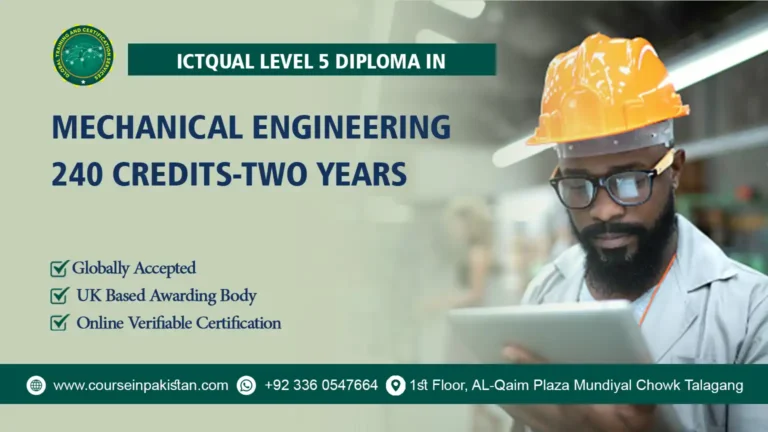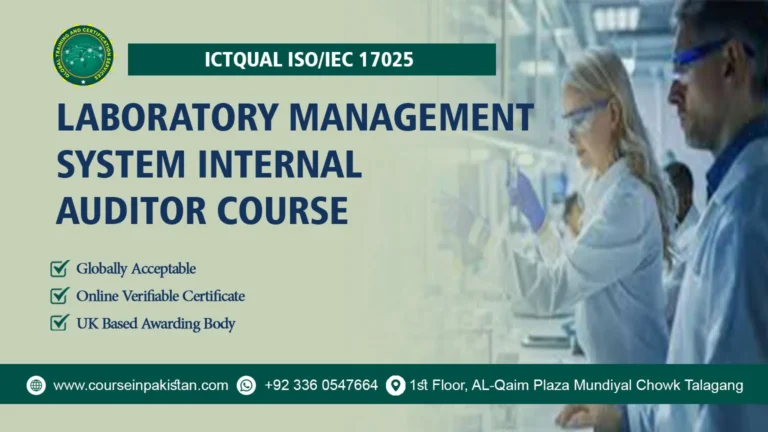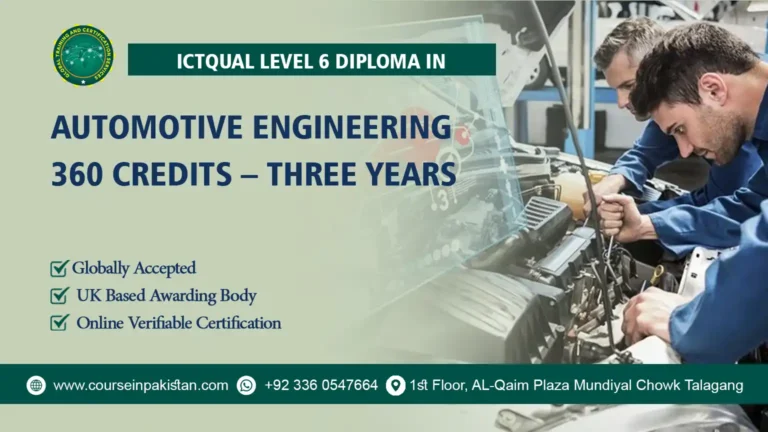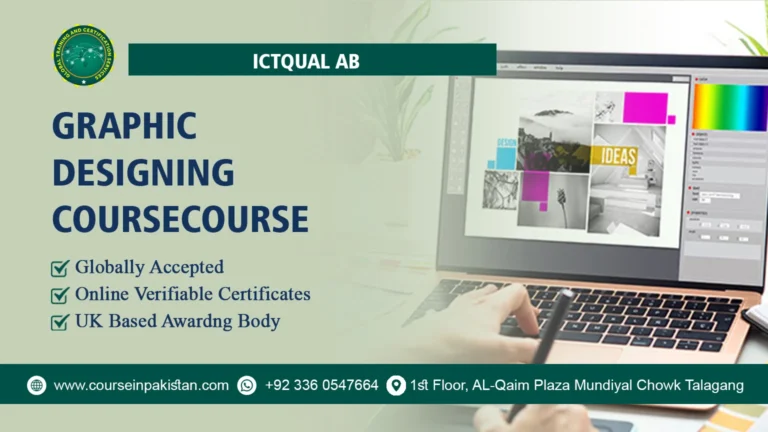
The ICTQual AB Level 6 International Diploma in Mechatronics is an advanced qualification designed for learners who want to gain in-depth expertise in the integration of mechanical, electrical, electronic, and computer engineering systems. Mechatronics is a fast-growing interdisciplinary field that plays a vital role in the development of robotics, automation, smart manufacturing, and cutting-edge industrial technologies. This diploma equips learners with the practical and theoretical knowledge required to design, operate, and maintain modern engineering systems in various industries.
This internationally recognized program provides a strong balance between academic learning and real-world application, preparing learners to meet the demands of advanced engineering fields. By covering a wide range of subjects, from robotics and automation to industrial systems and smart technologies, it creates highly skilled professionals who are prepared for global career opportunities.
Course Overview
The ICTQual AB Level 6 International Diploma in Mechatronics is a comprehensive 360-credit program that is fully assignment-based. Learners can study at their own pace and from anywhere in the world, offering maximum flexibility for both students and professionals. This diploma is British Council verifiable, MOFA and Embassy attestable, making it highly credible and suitable for international employment, job visa approvals, and iqama processing.
This qualification is suitable for both fresh and experienced learners. Fresh students are required to complete all 36 mandatory assignments within three years, ensuring a structured pathway to mastering the subject. On the other hand, experienced and competent professionals with at least 6 years of verifiable relevant experience can achieve this diploma through a fast-track pathway. By defending their knowledge and skills in professional discussion meetings with an ICTQual AB approved assessor, they can gain certification without completing all mandatory assignments.
This unique flexibility ensures that learners of different backgrounds can access a globally respected qualification that strengthens their academic and professional profile.
Key Highlights of the Course:
- 360-credit, fully assignment-based qualification with flexible self-paced study options.
- Globally recognized, British Council verifiable, MOFA and Embassy attestable certification.
- Designed for both fresh learners and experienced professionals seeking career advancement.
- Covers comprehensive mechatronics subjects, including robotics, automation, and smart systems.
- Provides international career recognition and eligibility for job visa and iqama approvals.
Course Benefits
Global Recognition and Credibility
- Certification is internationally recognized and can be used for overseas employment opportunities.
- Verifiable through British Council, MOFA, and Embassy attestation.
Flexibility in Learning
- Fully assignment-based study that allows learners to progress at their own pace.
- Accessible from anywhere in the world without classroom attendance.
Career Advancement Opportunities
- Enhances employability in robotics, automation, manufacturing, and engineering industries.
- Suitable for job promotions, iqama approval, and professional growth in international markets.
Options for Fresh and Experienced Candidates
- Fresh learners gain structured knowledge by completing all 36 assignments within 3 years.
- Experienced professionals can achieve certification through a fast-track pathway by validating their expertise in professional discussions.
Pathway to Higher Education and Specialization
- Provides a strong foundation for Level 7 Diplomas and postgraduate degrees.
- Opens opportunities for research, advanced engineering specializations, and professional body memberships.
Course Study Units
This qualification, the ICTQual AB Level 6 International Diploma in Mechatronics, consists of 36 mandatory units.
Year 1 – Foundation in Mechatronics
- Principles of Mechanical Engineering
- Fundamentals of Electrical and Electronic Engineering
- Engineering Mathematics
- Introduction to Computer Programming
- Materials Science and Engineering
- Engineering Drawing and CAD
- Basics of Control Systems
- Digital Logic and Microprocessors
- Sensors and Instrumentation
- Fundamentals of Robotics
- Health, Safety and Environmental Practices in Engineering
- Communication and Technical Report Writing
Year 2 – Intermediate Studies in Mechatronics
- Advanced Electrical and Electronic Systems
- Applied Thermodynamics and Fluid Mechanics
- Microcontrollers and Embedded Systems
- Automation and PLC Programming
- Mechanical Design and Manufacturing Processes
- Dynamics and Vibration Analysis
- Power Electronics and Drives
- Robotics Systems and Applications
- Mechatronic System Design
- Data Acquisition and Signal Processing
- Industrial Maintenance and Reliability Engineering
- Project Planning and Management in Engineering
Year 3 – Advanced Studies in Mechatronics
- Intelligent Systems and Artificial Intelligence in Engineering
- Advanced Control Engineering
- Robotics and Autonomous Systems
- Smart Manufacturing and Industry 4.0
- Renewable Energy Systems and Applications
- Advanced Computer-Aided Design and Simulation
- Cyber-Physical Systems and IoT in Engineering
- Advanced Mechatronic System Integration
- Engineering Research Methods
- Professional Ethics and Sustainability in Engineering
- Innovation and Entrepreneurship in Technology
- Final Year Major Project (Capstone Project)
Learning Outcomes
Year 1 – Foundation in Mechatronics
Principles of Mechanical Engineering
- Understand the core concepts of mechanics, thermodynamics, and machine elements.
- Apply basic principles of mechanical engineering to solve real-world problems.
Fundamentals of Electrical and Electronic Engineering
- Demonstrate knowledge of electrical circuits, electronic devices, and their applications.
- Analyze simple electrical systems using appropriate tools and techniques.
Engineering Mathematics
- Apply mathematical methods to solve engineering-related problems.
- Use algebra, calculus, and statistics in analyzing engineering systems.
Introduction to Computer Programming
- Develop simple programs using high-level languages for engineering applications.
- Apply logical thinking and algorithms to solve computational problems.
Materials Science and Engineering
- Identify the properties and applications of engineering materials.
- Select suitable materials based on mechanical, thermal, and electrical requirements.
Engineering Drawing and CAD
- Produce technical drawings using manual and computer-aided techniques.
- Interpret engineering blueprints and design specifications accurately.
Basics of Control Systems
- Understand feedback, stability, and response in basic control systems.
- Apply simple control strategies to mechanical and electrical systems.
Digital Logic and Microprocessors
- Explain the principles of digital circuits and logic gates.
- Demonstrate basic programming and applications of microprocessors.
Sensors and Instrumentation
- Describe the working principles of various sensors and transducers.
- Apply instrumentation techniques for measurement and control.
Fundamentals of Robotics
- Understand the structure, components, and operation of robotic systems.
- Apply robotic principles to basic automation applications.
Health, Safety and Environmental Practices in Engineering
- Apply safety regulations and standards in engineering environments.
- Promote sustainable and environmentally responsible engineering practices.
Communication and Technical Report Writing
- Develop technical documents, reports, and presentations effectively.
- Demonstrate professional communication skills in engineering contexts.
Year 2 – Intermediate Studies in Mechatronics
Advanced Electrical and Electronic Systems
- Analyze and design advanced electrical and electronic circuits.
- Apply modern tools to test and troubleshoot systems.
Applied Thermodynamics and Fluid Mechanics
- Apply thermodynamic principles to energy conversion systems.
- Analyze fluid flow and its applications in engineering systems.
Microcontrollers and Embedded Systems
- Program microcontrollers for automation and control applications.
- Integrate embedded systems into engineering solutions.
Automation and PLC Programming
- Develop automation processes using PLC programming.
- Apply control logic in industrial and manufacturing systems.
Mechanical Design and Manufacturing Processes
- Apply mechanical design principles in developing products.
- Evaluate common manufacturing processes for efficiency and quality.
Dynamics and Vibration Analysis
- Analyze the motion of mechanical systems under dynamic forces.
- Apply vibration analysis techniques to ensure system stability.
Power Electronics and Drives
- Understand the operation of power electronic devices and converters.
- Apply drive systems in controlling motors and machines.
Robotics Systems and Applications
- Design and implement robotic applications in real-world settings.
- Evaluate robotic performance in industrial and service sectors.
Mechatronic System Design
- Integrate mechanical, electrical, and control systems in mechatronic designs.
- Apply system design methodologies to engineering projects.
Data Acquisition and Signal Processing
- Acquire, analyze, and interpret engineering data using sensors and systems.
- Apply signal processing techniques for monitoring and control.
Industrial Maintenance and Reliability Engineering
- Apply maintenance strategies to improve system performance.
- Use reliability engineering tools to prevent failures.
Project Planning and Management in Engineering
- Plan and manage engineering projects effectively within given resources.
- Apply project management tools for scheduling, risk, and quality control.
Year 3 – Advanced Studies in Mechatronics
Intelligent Systems and Artificial Intelligence in Engineering
- Apply AI techniques to optimize engineering processes.
- Design intelligent systems for automation and decision-making.
Advanced Control Engineering
- Analyze and design advanced control systems for complex applications.
- Implement modern control strategies in mechatronic systems.
Robotics and Autonomous Systems
- Apply autonomy principles to robotic navigation and decision-making.
- Evaluate real-world applications of autonomous robotics.
Smart Manufacturing and Industry 4.0
- Apply digital technologies for smart manufacturing environments.
- Integrate IoT, automation, and AI in Industry 4.0 systems.
Renewable Energy Systems and Applications
- Understand renewable energy technologies and their applications.
- Design energy systems integrating sustainable resources.
Advanced Computer-Aided Design and Simulation
- Apply CAD tools for advanced design and engineering simulation.
- Validate designs using finite element and computational simulations.
Cyber-Physical Systems and IoT in Engineering
- Integrate IoT with engineering systems for real-time monitoring.
- Apply cyber-physical system concepts in smart technologies.
Advanced Mechatronic System Integration
- Integrate multidisciplinary systems for optimized performance.
- Apply advanced design principles in complete mechatronic solutions.
Engineering Research Methods
- Apply research methodologies to investigate engineering problems.
- Develop structured research reports with valid findings.
Professional Ethics and Sustainability in Engineering
- Apply ethical decision-making in engineering practice.
- Promote sustainable development principles in engineering projects.
Innovation and Entrepreneurship in Technology
- Apply entrepreneurial principles to technology-based ventures.
- Innovate new engineering solutions for global challenges.
Final Year Major Project (Capstone Project)
- Plan, design, and execute an engineering project integrating multidisciplinary knowledge.
- Demonstrate problem-solving, innovation, and project management skills.
Who is This Course For?
Fresh Graduates and Entry-Level Candidates
- Learners who have recently completed studies in science, mathematics, or engineering and wish to build a career in mechatronics.
- Individuals seeking foundational knowledge in robotics, automation, electronics, and mechanical systems.
Experienced Engineering Professionals
- Professionals already working in mechanical, electrical, or industrial fields who want to enhance their skills in interdisciplinary engineering.
- Technicians, supervisors, and engineers seeking formal recognition of prior experience and a globally respected qualification.
Career Switchers and Technology Enthusiasts
- Candidates from related fields such as IT, computing, or manufacturing who want to transition into mechatronics and automation.
- Individuals passionate about robotics, AI, Industry 4.0, and smart technologies looking to gain structured knowledge.
International Job Seekers
- Learners aiming for employment abroad where British Council verification, MOFA, and Embassy attestation are essential.
- Candidates seeking iqama approval or international recognition of their technical expertise.
Future Progression
- Advance into senior engineering, robotics, and automation roles in multinational companies.
- Explore opportunities in research and development within smart manufacturing and Industry 4.0.
- Qualify for higher-level management or technical leadership positions in engineering organizations.
- Gain eligibility for further education such as Level 7 Diplomas, postgraduate studies, or professional certifications.
- Pursue entrepreneurial ventures in robotics, automation, or sustainable technology development.
Academic Pathways:
- Progression to Level 7 International Diplomas in Engineering, Robotics, or Industrial Automation.
- Entry into Master’s degree programs in Mechatronics, Robotics, Automation, or related fields.
- Opportunities to pursue specialized research or PhD studies in smart technologies, AI, or advanced mechatronic systems.
- Access to memberships with professional engineering bodies and international associations.
Conclusion
The ICTQual AB Level 6 International Diploma in Mechatronics is a globally recognized qualification that prepares learners to thrive in the modern world of robotics, automation, and smart engineering systems. With its flexible learning model, international verification, and tailored pathways for both fresh learners and experienced professionals, it provides an ideal foundation for global career growth. Whether pursuing advanced studies, seeking employment abroad, or aiming to lead in the fast-evolving field of Industry 4.0, this diploma offers the skills, recognition, and credibility to succeed in the dynamic field of mechatronics.






